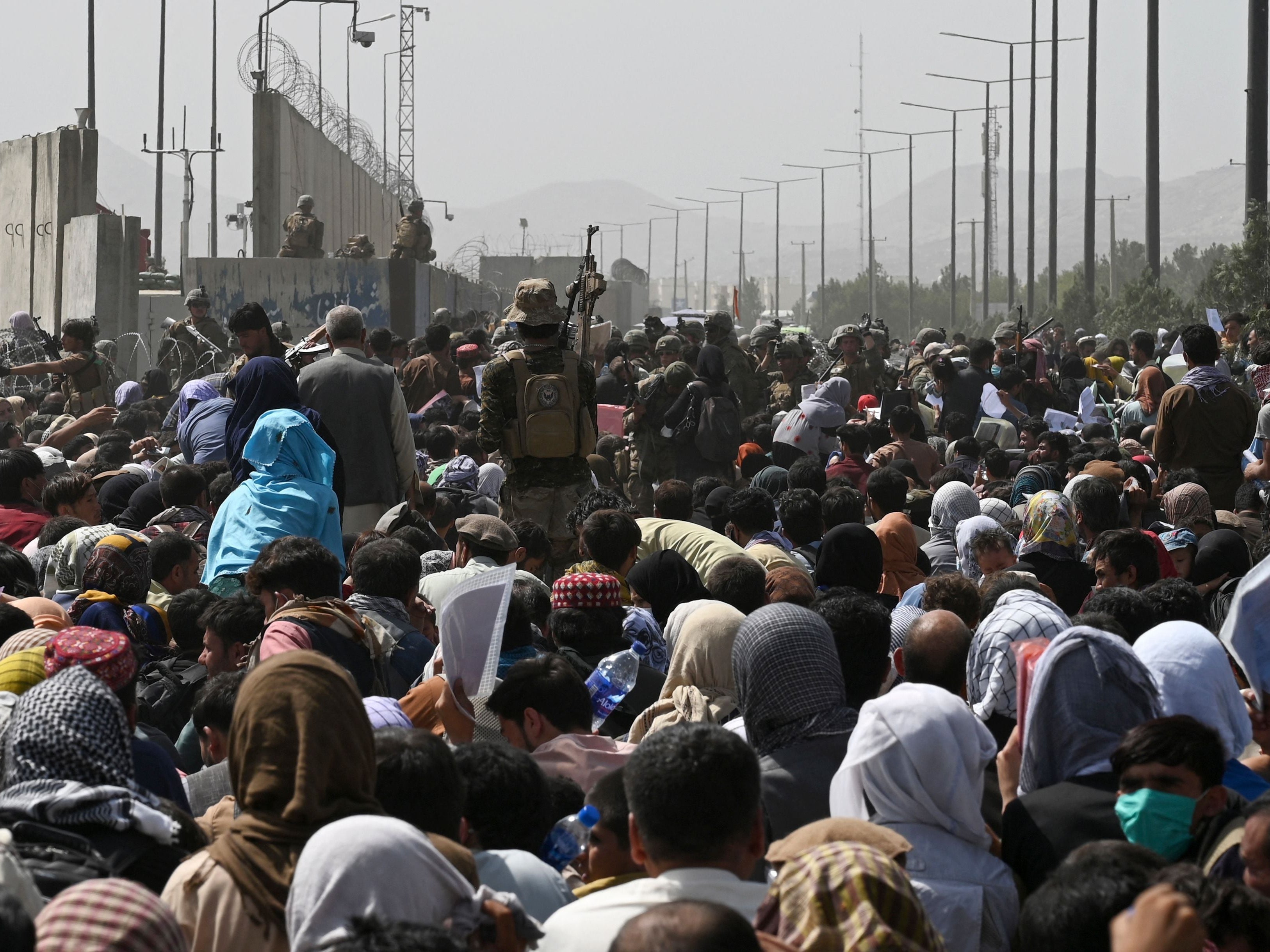Australia grants visas for more than 100 former embassy staff in Afghanistan, a day after rejecting them
The initial rejection of the visas by Australian authorities was termed a ‘disgrace’

Your support helps us to tell the story
From reproductive rights to climate change to Big Tech, The Independent is on the ground when the story is developing. Whether it's investigating the financials of Elon Musk's pro-Trump PAC or producing our latest documentary, 'The A Word', which shines a light on the American women fighting for reproductive rights, we know how important it is to parse out the facts from the messaging.
At such a critical moment in US history, we need reporters on the ground. Your donation allows us to keep sending journalists to speak to both sides of the story.
The Independent is trusted by Americans across the entire political spectrum. And unlike many other quality news outlets, we choose not to lock Americans out of our reporting and analysis with paywalls. We believe quality journalism should be available to everyone, paid for by those who can afford it.
Your support makes all the difference.A day after refusing visa applications of a group of more than 100 Afghan nationals who guarded the Australian embassy in Kabul, the government accepted their applications on Sunday.
The Australian government, in a letter emailed to the former Afghan security contractors on Saturday, had asked them to contact a “migration agent.”
In the letter, Australian authorities told them they were not eligible for certification under the “at-risk employees” visa scheme.
The letter — first obtained by ABC News — thanked the former security guards for their applications and said “unfortunately, you are not eligible for certification under this visa policy.”
The reason stated for the rejection of their visas was because they were only for those directly employed by the embassy and not contractors, leaving them to an uncertain future under the Taliban, reported ABC News.
The letter stated that “an initial 3,000 humanitarian places will be allocated to Afghan nationals within Australia’s 13,750-person annual programme.”
“Particular priority will be given to persecuted minorities, women and children, and those who have links to Australia,” it said.
On Sunday night, however, a statement from the authorities said they had already been granted visas.
“The security guards referred to in media reports today were not eligible for the restricted locally engaged employee visas but have already been approved for visas in another humanitarian category,” the statement said.
The Australian authorities in the letter had asked the contractors to continue investigating their options. “We encourage you to investigate your options fully, including under this humanitarian stream,” it said.
The rejection was a “shock” to the entire group of contractors, said one of them to ABC News, not identified by the news channel because of security concerns.
The contractors were reportedly paid less than $30 a day to work as security guards at the embassy, the news channel said. Over the years, several hundreds were recruited by security companies to guard the embassy.
Glenn Kolomeitz, who heads a team of lawyers and ex-military personnel working pro bono to try and extract the Afghans, was quoted as saying the rejection of visas of these Afghans was a “disgrace.”
“This is clearly an attempt by Defence and DFAT [Department of Foreign Affairs and Trade] to look like they have done their job when they sat on their hands for so long,” he said.
“These are mass-produced rejection letters and they are entirely unacceptable,” he added.
After the Australian government granted the visas, Mr Kolomeitz again attacked the government for not saying so in the original rejection letter, adding that the same reference number had been used in all the letters that were emailed.
“If DFAT had already granted these visas, why did they not say so in the letter? Why did the letter encourage these applicants to go see a migration agent and pursue other options, and why were none of the guards or we, their legal representatives, advised?” he was quoted as saying by The Guardian.
“In the last 24 to 48 hours they have punched out over 100 of these templated rejection letters unsigned, or with the same phone number,” he said.
A DFAT spokesperson had earlier told ABC News that the security guards who were not granted visas had “already been approved for visas in another humanitarian category.”
The lawyers for the contractors, however, said this was not communicated to them. One of the members of the lawyers' team, Kay Danes, said they were only aware of six contractor guards who had been informed they had been given temporary visas.
Australian authorities said that since 2013, the country has issued more than 8,500 humanitarian visas to Afghan nationals including 1,800 in the special category for at-risk employees.
Earlier, Australia’s defence minister Peter Dutton suggested some former Afghan guards and interpreters could pose a security risk to the country. He received backlash for his remarks as they came at a time Afghanistan has been in the middle of an ongoing humanitarian crisis.
Join our commenting forum
Join thought-provoking conversations, follow other Independent readers and see their replies
Comments